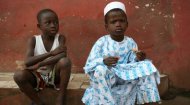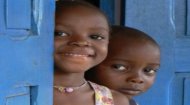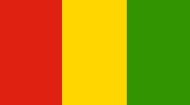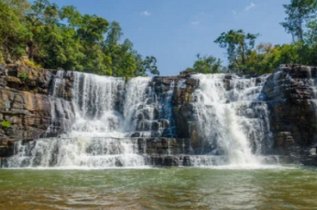|
Efforts by regional and international bodies to facilitate a return to constitutional order are ongoing, emphasising the urgent need for a transparent and inclusive transition that addresses the root causes of political instability and lays the groundwork for genuine democratic reform. Without a robust and accountable political framework, the potential for sustained development appears severely limited.
Poverty remains widespread, especially in rural areas, and unemployment, particularly among the youth, is a critical social issue. Diversification of the economy beyond mining is a key objective, with agriculture, fisheries, and tourism identified as areas for potential expansion. Attracting responsible foreign investment, improving governance in the mining sector, and investing in human capital and infrastructure are crucial steps towards realising Guinea's economic potential and fostering a more equitable distribution of wealth. The social profile of Guinea Brazzaville presents a mixed picture of resilience and significant development challenges. Education, while theoretically compulsory, faces numerous hurdles. School attendance rates are low, especially for girls, and the quality of education is undermined by inadequate infrastructure, insufficient resources, and a shortage of qualified teachers. These deficiencies perpetuate cycles of poverty and limit opportunities for the younger generation. Healthcare services are similarly constrained. Guinea faces a high burden of infectious diseases, including malaria, tuberculosis, and HIV/AIDS. The devastating Ebola outbreak of 2014-2016 highlighted the fragility of its health system, which suffers from a lack of trained medical personnel, limited access to essential medicines, and insufficient facilities, particularly in rural areas. Access to clean water and sanitation remains a critical issue, contributing to water-borne diseases. These social challenges directly impact social stability. High rates of youth unemployment, limited opportunities, and regional disparities can fuel discontent and contribute to social unrest. Addressing these issues requires substantial investment in human development, equitable resource allocation, and policies that promote inclusivity and citizen participation. |
Guinea Conakry Profile |
Guinea Conakry ProfileGuinea Conakry ProfileGuinea Conakry Profile |
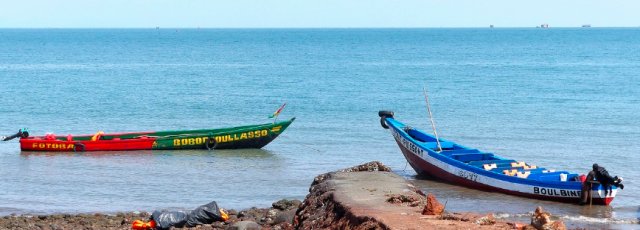
|
Guinea's cultural heritage is exceptionally rich and diverse, reflecting its multitude of ethnic groups, each with distinct languages, traditions, and artistic expressions. Music and dance play a central role in daily life, serving as powerful forms of communication, celebration, and storytelling. Guinea is renowned for its contributions to West African music, with instruments like the Kora (a 21-stringed harp-lute), Balafon (a wooden xylophone), and Djembe (a rope-tuned skin-covered goblet drum) being integral to its sound. Legendary artists such as Mory Kanté brought Guinean music to global audiences. Oral traditions, including epic poems and folktales, are vital for transmitting knowledge and values across generations. Traditional ceremonies, rites of passage, and festivals are deeply ingrained in the social fabric, reinforcing community bonds and preserving ancestral customs. While embracing modernity, Guineans continue to cherish their heritage, which provides a strong sense of identity and resilience amidst the challenges of development. This vibrant cultural landscape is a source of national pride and a significant asset for potential tourism development. For the average Guinean, daily life is a constant negotiation with the prevailing conditions of the nation. Access to basic services like reliable electricity, clean water, and functional healthcare is often intermittent, particularly outside the capital. Economic opportunities are scarce, pushing many into informal sectors or leading to outward migration in search of better prospects. The frequent shifts in political leadership can create an atmosphere of uncertainty, impacting everything from market prices to the availability of public services. The vast majority engage in agriculture or small-scale commerce to sustain themselves. Improvements in infrastructure, especially in energy and roads, are gradually occurring, promising to ease some of the burdens of daily life and open up new economic avenues. Today Guinea Conakry is one of the poorest countries in Africa standing at 178th place out of 193 countries and territories in 2025 when ranked in terms of life expectancy, literacy, access to knowledge and the living standards of a country. A predominantly Islamic country, with Muslims representing 85% of the population, 50.5% of this population live below the national poverty line. Furthermore, a significant portion (66.2%) experiences multidimensional poverty meaning they face deprivations across multiple aspects of life, including health, education, and living standards. The infant mortality rate in Guinea Conakry is 62 deaths per 1,000 live births, according to UNICEF data. This means that, on average, 62 infants out of every 1,000 live births in Guinea do not survive to their first birthday. Guinea's infant mortality rate is significantly higher than the global average of 38 deaths per 1,000 live births, according to the World Bank. Approximately 32.2% of children under the age of five are stunted, meaning they have impaired growth due to malnutrition. In Guinea Conakry, the adult literacy rate is 45.33%, significantly lower than the world average of 86.53%. There is also a notable disparity between male and female literacy rates, with over 60% of men having adequate literacy skills, compared to just over 30% of women, and life expectancy is 60.74 years. Access to safe drinking water varies significantly between urban and rural areas. While around 67% of Guinean households have access to an improved water source overall, a large portion of the population relies on potentially contaminated sources like wells, rivers, or boreholes, especially in rural areas. In urban areas, like Conakry, tap water is often supplied by the Société des Eaux de Guinée (SEG), but aging infrastructure and inadequate maintenance can lead to contamination. Volunteer work in Guinea includes supporting families, working with orphaned and homeless children, school projects and developing health care programs.
|

 Despite its turbulent political history, Guinea possesses extraordinary natural endowments that could underpin robust economic stability and growth. The country holds the world's largest reserves of bauxite (the raw material for aluminium), significant deposits of iron ore (including the vast Simandou deposit), gold, and diamonds. Its abundant rainfall and fertile land also offer substantial agricultural potential, while its numerous rivers provide immense hydroelectric power possibilities. However, this wealth has largely remained untapped or poorly managed. The economic structure remains predominantly extractive, relying heavily on raw material exports with minimal value addition. Infrastructure deficits, particularly in energy and transportation, are barriers to development. Less than half the population has access to electricity, and road networks are often in poor condition, impeding commercial activity and access to markets.
Despite its turbulent political history, Guinea possesses extraordinary natural endowments that could underpin robust economic stability and growth. The country holds the world's largest reserves of bauxite (the raw material for aluminium), significant deposits of iron ore (including the vast Simandou deposit), gold, and diamonds. Its abundant rainfall and fertile land also offer substantial agricultural potential, while its numerous rivers provide immense hydroelectric power possibilities. However, this wealth has largely remained untapped or poorly managed. The economic structure remains predominantly extractive, relying heavily on raw material exports with minimal value addition. Infrastructure deficits, particularly in energy and transportation, are barriers to development. Less than half the population has access to electricity, and road networks are often in poor condition, impeding commercial activity and access to markets.